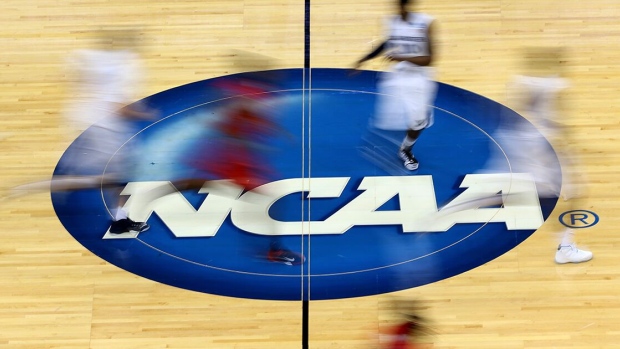May 1, 2024
NCAA Sued by States for ‘Unfair’ Limits on Student Athletes
, Bloomberg News

(Bloomberg) -- The National Collegiate Athletic Association was sued by a bipartisan group of US states over restrictions that allegedly hinder the ability of student athletes to get a better cut from the commercial use of their names and images, including on video games and merchandise.
The suit, filed Wednesday by Tennessee, Florida, New York, Virginia and the District of Columbia, challenges a rule created in 2021 that prevents prospective students from reviewing compensation details for use of their so-called name, image and likeness — or “NIL” — before they choose which school to attend. Athletes already enrolled aren’t affected.
The rule targets students moving on from high school or transferring from another college. The states allege it reduces competition among universities and keeps athletes in the dark about how much money they can make from each school they’re considering, preventing them from getting the best deal. The suit was filed in federal court in Tennessee.
“Student athletes should be able to call the shots on their career fairly and evenly,” Letitia James, the Democratic attorney general of New York, said in a statement.
Student athletes get NIL opportunities through collectives affiliated with universities, James said in a statement about the lawsuit. Those deals can include video game, social media promotions, merchandise, autograph sales or licensing of their name and images, “all of which student athletes can be paid for,” according to the statement.
The rule forces student athletes to “commit, enroll, or transfer to a university without understanding the full scope of NIL opportunities or comparing those opportunities to ones at competing schools,” the states alleged in their complaint.
In a statement, the NCAA said it is working with the attorneys general to try to reach an agreement and that the current rules were “overwhelmingly supported” by member schools.
“The NCAA fully supports student-athletes making money from their name, image and likeness and is making changes to deliver more benefits to student-athletes, but an endless patchwork of state laws and court opinions make clear partnering with Congress is necessary to provide stability for the future of all college athletes,” the association said.
A coalition of states previously sued the NCAA in December over a so-called transfer eligibility rule, which they alleged harms student athletes’ ability to move to other schools and still participate in collegiate sports, according to James’s statement. The New York attorney general said the NCAA temporarily stopped enforcing that rule as a result of the earlier suit.
(Updates with statement from NCAA.)
©2024 Bloomberg L.P.
























